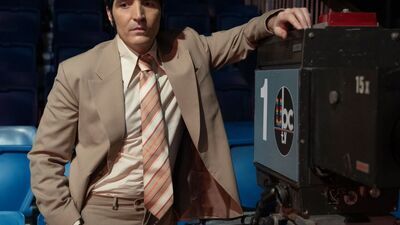If you ever get a chance to pick up my comic book, Count Crowley, [the main character Jerri Bartman] was a reluctant midnight monster hunter, then an amateur midnight monster hunter, now she’s a mediocre midnight monster hunter. She is someone wrestling with massive depression, anxiety, addiction and alcoholism, which are [the] Four Horsemen of my own apocalypse—those are the things that I have been struggling with since I was very young. Having Jerri do that as metaphor and, sometimes, on-the-nose confrontations with demonic beasts and necromantic enemies, it’s such a great place where I can safely tell stories—hopefully, people will listen to those stories and be entertained and have fun and enjoy the artistry while, at the same time, maybe feel a little less alone for a second.
Whether it’s Count Crowley or your 2014 film “Animals,” about homeless characters who are drug addicts, which you wrote, you’re revealing a lot of yourself. How much anxiety was there about showing your struggles to the world in such an honest way?
Massive, overwhelming, almost unbearable anxiety gripped me in the summer of 2013 as myself, my wife Eve [Leigh], my friend Collin [Schiffli], my friend Mary Pat [Bentel] and a whole micro-army of friends gathered around me for us to return to Chicago and make this movie “Animals,” which is a story about love and codependency, but told through the lens of homelessness and addiction, which is a subject very close to my reality. Even though I was not making a biographical film, there was not a page of that script that wasn’t dripping with the pollen of my life experience.
As we’re making the film, Mary Pat Bentel, my incredible producer, said to me, “You know, people are going to ask where this comes from. Are you prepared to talk about it?” I said, “Absolutely not. I don’t want anybody to know my past history as an addict. I’m afraid no one’s going to want to hire me in Hollywood. I’m afraid people are going to think differently of me.” And she said, “Okay, well, I think you’re pretty incredible, and I think you are making an important film here.” I had this similar conversation, and my wife Eve said to me, “It’s your decision. We will defend you no matter what. If you never want to tell anybody, we will even come up with bullshit just to tell the press. But just know that there is a chance that somebody out there could see this and see now how you are living a productive and serene, satisfying life, and maybe that could inspire them.”

